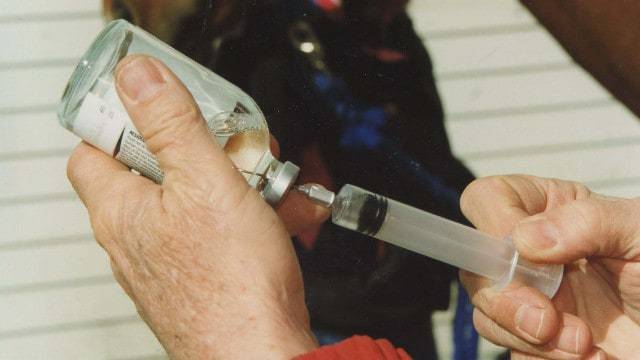FEI to ‘boost awareness’ on banned substances

The FEI plans to “boost awareness” about substances prohibited in its sport, which includes more than 1,000 medications.
Clean sport
Until now the FEI has run the Equine Anti-Doping and Controlled Medication Programme (EADCMP) in Europe. Remaining countries around the world have been managed by their national federations (NF) or national anti-doping programmes.
As part of the FEI Clean Sport campaign the programme will be rolled out across all competitive countries on 1 January 2016.
Animalwelfare
“We have close to 4,000 international events on the FEI calendar now, and as the international governing body, it is our responsibility to safeguard our athletes and thesportitself, and part of that is protecting ourcleanathletes,” said FEI president Ingmar De Vos.
“It is vital for the integrity of allsportthat it iscleanand fair, but it is even more important when there is an animal involved because of the welfare implications.”
Ahead of the global EADCMP, the FEI plans to increase awareness in order to ensure athletes and their vets know what they are giving their horses and prevent unintentional positives.
Education
“Of course our horses have to be treated if they are injured or sick, but anything given to the horse must have been eliminated from the body of the horse by the time of competition so that we can maintain the integrity of oursport,” said Ingmar.
“Boosting awareness and education is key. Keep itcleanis the message.”
The FEI’sprohibited substances listis divided into two sections – controlled medication and banned substances. Controlled medication substances are those that are regularly used to treat horses, but which must have been cleared from the horse’s system by the time of competition. Banned substances (doping), are substances that should never be found in the body of the horse.
Suspended
The president’s statement follows news that two athletes have been provisionally suspended after their horses tested positive for prohibited substances.
On 3 May at a CEI1* 80km event in France, Buenaventura ridden by the French rider Candice Pilloni tested positive for the banned substance oxycodone (an opioid analgesic) and the controlled medication lidocaine and its metabolite 3-hydroxylidocaine, a local anaesthetic.
Samples taken at the North American Juniors and Young Riders Championships in Lexington, USA (16 and 18 July) from Why Not, ridden by Sophie Simpson, returned positive for the banned substance capsaicin, which is a topical analgesic or irritant.






